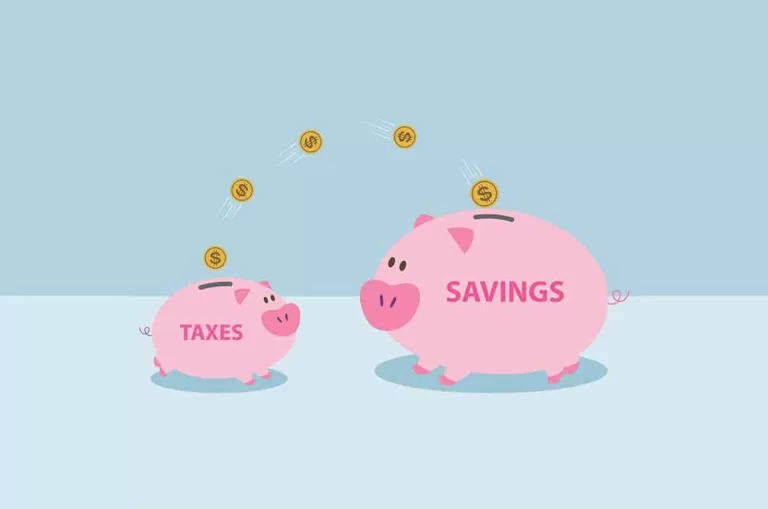Are your air conditioning costs draining your budget? We have the solution! Our concise guide reveals proven strategies to slash your AC expenses without sacrificing comfort. Say goodbye to soaring energy bills and hello to substantial savings. Take charge of your finances and enjoy a cooler, cost-effective home.
How To Save Money On Air Conditioning?
Here you can find the best ways to save money on air conditioning:-
Adjust Your Thermostat Settings
You can reduce your air-conditioning related energy costs by about 1% for each 1 degree you lower the setting. That means raising your temperature setting from 70° to 75° can reduce your air-conditioning bill by 5%. This is more easily accomplished during certain times of the day.
For Example: During the hottest part of the day, you might reduce your setting by 2°. But at night, during the coolest part of the day, you may be able to change the setting by 5°.
Change Your Air Conditioner Filter Regularly
Did you know that a dirty air-conditioning filter forces your air conditioner to work harder and run longer? That will increase the cost of your air-conditioning.
If you’re serious about how to save money on air-conditioning, plan to change your air-conditioning filter on a regular basis. It’s recommended that you change the filter every 90 days. That will mean changing the filter twice during a typical summer season.
But you may want to change the filter more frequently, under certain circumstances. For example, if you have a pet that sheds heavily, the filter will clog up more quickly. If the summer is particularly hot, causing your air conditioner to run more frequently, the filter may become dirty more often.


Cover Windows Throughout Your Home
Uncovered windows are one of the most counterproductive elements of how to save money on air-conditioning. While your air conditioner is working to cool your home, sunlight is pouring into the house, creating the opposite effect.
Many homes are specifically built with a large number of windows, often the larger floor-to-ceiling versions. These help in wintertime, creating an effective solar heating system. The windows allow a large amount of sunlight into the home, reducing the need for home heating.
But what is an advantage during the winter season in reducing heating bills, has the exact opposite effect during the summer months.
For that reason, it’s important to keep your windows properly covered during the summer. That may be no more complicated than installing shades or blinds. If you do, they should be room darkening. The darker the shades or blinds, the less heat will be entering the home.
An alternative is to cover your windows with solar shields. Those are a mesh-like coating that minimizes the amount of heat that passes through your windows. The more you can reduce heat flow from windows, the cooler your home will be. That will translate into less money spent on air-conditioning.
Seal Your Doors and Windows
Cracks and open spaces in doors and windows don’t generate solar heat the way windows do. But they can allow hot air to enter your home, having much the same effect.
Just as you winterize your home in the fall to keep warmer and minimize heating costs, you should do the same in the spring. Look for any areas in the home, particularly around doors and windows, that may allow hot air into the home. When you find them, seal them up the same way you will if you are winterizing the home.
For small openings, particularly around windows, inexpensive caulking may be all that’s needed. But for larger openings, especially around doors, you may need to install weatherstripping. This is only a little more expensive and time-consuming than caulking. But it will block hot air from entering your home.
At the same time, be consistent about keeping your doors and windows closed during the hottest times of the day. A door left open for only a few minutes can invite a substantial amount of hot air.
And while you may want to have a window or two open to invite in fresh air, that habit is counterproductive to saving on air-conditioning costs. While your air conditioner is working to cool the home, the open window is bringing in warm air.
Build Shade Around Your Home
This can be as simple as planting trees in strategic locations around your home. That means, first and foremost, planting them in areas where they can block direct sunlight into your windows.
Hardwood trees are usually best for this purpose. The leaves they sprout during the warm season will provide natural protection from the sunlight into your home. But the same trees will shed their leaves during the cold winter months, allowing sunlight to stream into your home. That will give you the benefit of passive solar heating during the time of year when you need it most.
If you’re unable to plant trees around your home, or find it undesirable, you may be able to get a similar effect using awnings. These overhang the windows sufficiently to block the worst of the summer sun. But be aware that not all neighborhoods permit awnings to be installed.
Change Your Cooking Habits During Summer
During the hot summer months, it’s important to change your behavior. Certain activities will generate heat within the home, nullifying the effect of your air conditioner.
Cooking is the biggest culprit here. The stove is effectively a heating unit in your kitchen. That means it’s offsetting your air-conditioning anytime it’s used.
Surface stove units may have minimal impact on the temperature of your home, especially if they’re used for short periods. But cooking or baking in your oven is a temperature dealbreaker.
Ovens can generate considerable heat, especially if you cook a roast for several hours. The oven will throw off continuous low-grade heat when it’s being used. But it will also create a blast of heat for your kitchen each time the oven is opened.
As an alternative, make greater use of your microwave oven. And with the warmer weather, plan to grill outside as frequently as possible.
Have Your Air Conditioning Unit Serviced
Just like a car, an air-conditioning unit needs to be serviced on a regular basis. This should be done at least once a year, before the air-conditioning season starts. The technician can make sure that the unit is functioning properly, and will change your filter if necessary.
But most important will be checking the Freon level in the unit. Freon is the substance that enables your air conditioner to cool your home. It may need to be recharged for maximum efficiency. The technician may also discover your unit is leaking Freon, and will be in need of repair work.
Replace Your Air Conditioner
An old, inefficient air-conditioner is one of your worst enemies when you’re looking for how to save money on air conditioning. Because of its reduced capacity to cool your home, it may run longer and cost more to operate. The ultimate solution in that case is to simply replace the air-conditioner.
Unfortunately, replacing your air conditioner is not a do-it-yourself job. In most jurisdictions, air-conditioning technicians are required to be certified in the handling of freon. If you aren’t, you’ll be legally unable to replace your own air-conditioner.
The job will need to be done by a professional. You’ll need to choose a reputable one to get the job done right. Take advantage of the providers listed on Angi (the former Angie’s List). It will help you to find the most reputable air-conditioning installer available.
One of the major reasons why homeowners delay the necessary step of replacing their air-conditioning units is cost. It can cost several thousand dollars to install a brand-new central air-conditioning unit.
If you don’t have the cash available, investigate options to obtain a personal loan. These are unsecured loans that can be used for any purpose, including home improvements. They typically come with a fixed interest rate and payment, and run for a term of three- or five-years. You can borrow $50,000 or more if you qualify.
Two popular sources for personal loans are Upgrade and Upstart. Upgrade can provide a personal loan of up to $50,000 and Upstart will provide a personal loan from $1,000 to $50,000.
Get Help From The IRS When You Replace Your Air Conditioner
Replacing your air conditioner may be the ultimate strategy for how to save money on air conditioning. But it does come at a cost. It can cost several thousand dollars to replace a typical central air-conditioning unit.
Fortunately, there is help available on the tax front. Under current tax law, you can take advantage of the residential energy efficient property credit. The credit extends to the installation of energy efficient air-conditioning units.
The big advantage of a tax credit is that it represents a direct reduction of your tax liability. This is the opposite of a tax deduction, which merely lowers your taxable income, and produces a much smaller tax savings.
What To Do With The Money You Save On Air Conditioning?
Finding ways to save money can be a little bit like being on a perpetual diet. You’re constantly sacrificing for benefits that seem slow in coming. For that reason, any savings strategy, including how to save money on air-conditioning, should be worked into your household budget to provide maximum benefit.
One of the best ways to do this is to implement budgeting software, like Dave Ramsey’s EveryDollar. There are plenty of budgeting programs available, but what makes this one unique is that it specifically directs savings into one of two mission-critical goals: paying off debt and saving money for long-term investments.
The most fundamental reason for any kind of budgeting is to improve your long-term financial situation. EveryDollar will help you to do just that.
Conclusion
Air-conditioning costs are one of those silent expenses that start draining your budget each and every time you turn your system on. But by implementing at least some of the strategies above, you’ll be able to reduce the total cost. And the less money you spend on expenses like air-conditioning, the more you’ll have available for building your financial future.
Find this helpful? Share it on Pinterest, LinkedIn and Facebook for your dear ones. Also, Sign up for our newsletter! You’ll get articles like this (and so much more!) delivered straight to your inbox.
Did you take our Reader Survey? If not, it only takes 1 minute and you can take our survey here.
FAQs
To save money on your AC, it is recommended to set the temperature between 76-78 degrees Fahrenheit (24-26 degrees Celsius) during hot weather. This range provides a comfortable indoor environment while still reducing energy consumption and costs.
No, it is not cost-effective to leave the air conditioner running all day, especially when you’re not at home. It’s more efficient to adjust the thermostat when you’re away or use programmable settings to maintain a comfortable temperature only when needed.
The best temperature to save money on your AC depends on personal preferences and climate conditions. However, setting your thermostat to around 78 degrees Fahrenheit (25 degrees Celsius) during hot weather is a good balance between comfort and energy savings.
While setting your AC to 72 degrees Fahrenheit (22 degrees Celsius) might provide a cooler indoor environment, it may also result in higher energy bills. Each degree below the recommended temperature range adds to the cooling costs. Consider finding a temperature that balances comfort and energy efficiency to save money in the long run.








